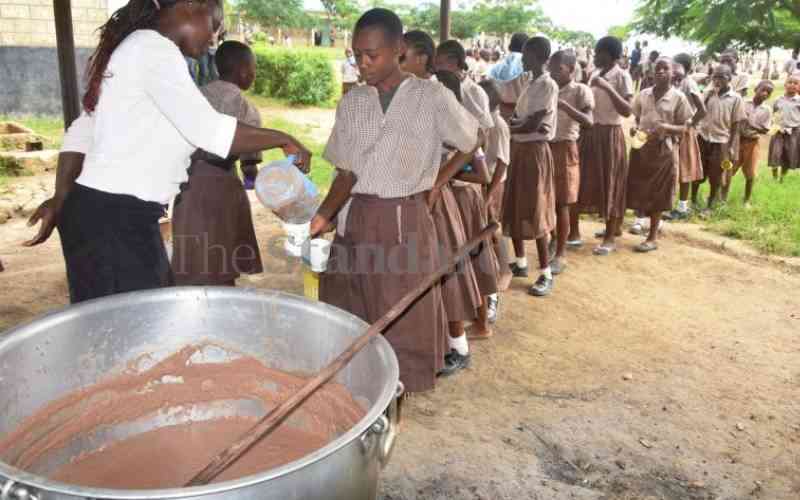×
The Standard e-Paper
Home To Bold Columnists

Public schools in informal settlements in Naivasha are now appealing for food and general support from flower farms and hoteliers so as to keep hundreds of learners in class.
The harsh economic times coupled with drought have crippled the free feeding programme in schools.